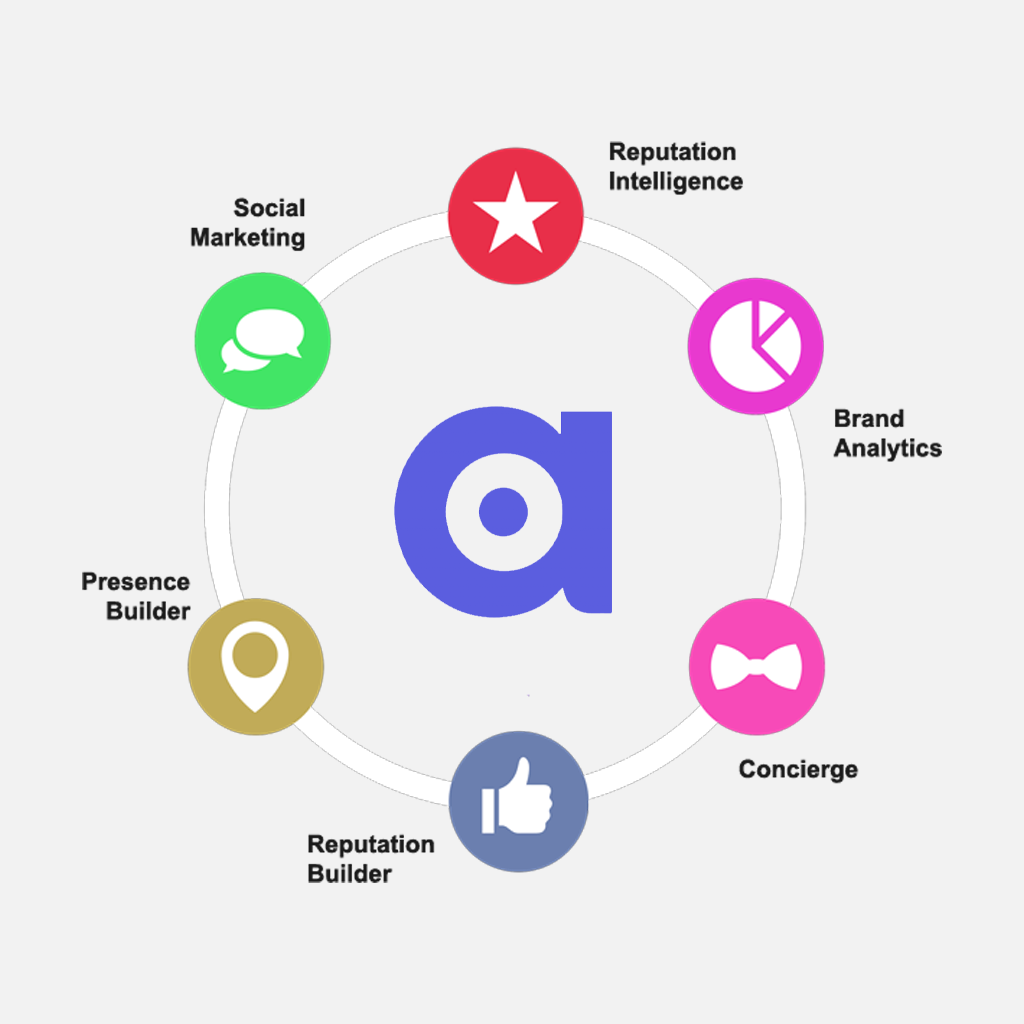Table of Content
The trend of managing brand reputation has been merged with a new wave of technology. That is why you may find the infinite latest tech options for this purpose.
Using online brand reputation management tools is one of the ways to get your business noticed by potential customers. It aids in maintaining online reputation by monitoring the online activity and feedback on your website and social media profiles.
Want to know about online brand reputation, usage, ways, and how to implement a successful reputation management plan? Let’s rundown this blog and explore the details.
What is Online brand reputation management?
A company’s or individual’s online reputation is managed, monitored, and influenced through this process. It includes everything from proactive reputation management and monitoring to responding to online reviews and feedback.
Online brand reputation management aims to protect and improve a company or individual’s online reputation and increase its visibility and credibility.
Ways to Manage Online Reputation
Online reputation management is performed in numerous ways, but some of the most common methods include:
Proactively managing your online presence
This involves creating and maintaining a strong online presence and ensuring that your website and social media accounts are up-to-date and look professional.
Monitoring online reputation
With the help of these tools, you can explore and monitor the online worth of your brand or yourself. It allows you to know where you stand among your users or customers.
Influencing the conversation
It includes online marketing and PR techniques to influence what is being said about you or your company online.
Responding to online reviews and feedback
This way helps you respond to positive and negative reviews professionally and positively, so the visitor or consumer knows your responsiveness.
Managing your social media accounts
These tools include monitoring and managing your social media accounts, creating and managing a website, and developing marketing campaigns. It is necessary to maintain a positive image online.
Online Reputation Management Tools for Your Brand
It’s essential to choose the right tool for your needs, set up your profile and account settings correctly, and monitor your reputation regularly.
You can use several different tools, and a few are discussed below.
1. Google Alerts
You can use Google alerts to know about your brand. For that sake, you have to enter your brand. If your brand is mentioned online, you’ll receive an email notification as soon as it’s mentioned.
2. Social Media Monitoring
Another effective way to manage your brand’s online reputation is to monitor social media. It helps you to know about your worth on social media platforms.
With these tools, you can set up keyword alerts so you’ll be notified any time your brand is mentioned on social media.
3. Online Review Monitoring
In addition to managing your brand’s online reputation, you also need to monitor your reviews. You can use some different tools to do this, including Google Alerts (mentioned above), Yelp Alerts, and Review Push.
4. Reputation Management Services
Finally, another option for managing your brand’s online reputation is to use a reputation management service. Some of the most popular reputation management services include Brandwatch, Reputation.com, and Reputation Defender.
These are just a few of the different tools you can use to manage your brand’s online reputation. You can quickly and efficiently track what’s being said about your brand online and respond to any negative comments or reviews.
5. SEO Tools
SEO tools help brands optimize their website and content for better visibility in search engines. These tools are designed to identify and track keywords and analyze their website’s SEO performance.
6. Web analytics
This is the process of measuring and analyzing how people use the Internet. It can help you track and improve your website’s performance. You can understand your customers’ behavior, preferences, and needs to make better business decisions.
What is a successful Reputation Management Plan?
Each reputation management plan will be unique and tailored to the business’s specific needs or the individual it is designed for. However, certain key elements should be included in any successful reputation management plan to be effective.
Some of the most important components of a successful reputation management plan include:
Identifying Your Key Audiences
The first step to any successful reputation management plan is identifying your key audiences. Exactly who do you need to target? By targeting your audience, you can achieve the desired goals for your business.
Understanding Your Current Reputation
Before you can start to improve your reputation, you first need to understand what it is currently. This means conducting research and gathering data on how your key audiences perceive you. By knowing the current scenario, you can strive for better outcomes.
Setting Goals and Objectives
Your reputation management plan should include specific goals and objectives. What do you want to achieve? Do you want to improve customer satisfaction levels?
Increase employee engagement? Boost sales? Whatever your goals may be, make sure they are specific, measurable, achievable, relevant, and time-bound (SMART).
Developing Strategies and Tactics
Once you know what you want to achieve, you need to develop strategies and tactics to help you get there. This could involve improving your customer service, implementing employee training programs, or increasing your marketing and advertising efforts.
Monitoring and Evaluating Progress
Last but not least, you need to continuously monitor and evaluate your progress to ensure that your reputation management plan is working as intended. This will help you make necessary adjustments and ensure that you are on track to achieving your desired results.
Conclusion
Managing your online brand reputation is vital because it keeps your brand prominent, connected, and growing at the same time. However there are many tools for online brand reputation management, but some of the most popular and effective ones include social media management platforms, search engine optimization (SEO) tools, and web analytics tools.
Social media management platforms help brands manage and monitor their social media accounts effectively. These platforms provide social media monitoring, reporting, and analytics.
Additionally, they often come with tools to help brands create and schedule content and engage with their audience.






